Ever since I started watching cinema as an art form, with as much seriousness I could garner – I have always had a special place for the cinema of the South of India.
Might be because I am ‘regional’ myself, and even after close to three decades of stay in the national capital, I have never grown out of that fringe attitude.
To start with, those were art-house films; films that you were expected to see to be accepted in Kolkata’s ‘intellectual’ circuit – Adoor, Aravindan, Shaji Karun and the likes. Commercial films, even the mainstream ones that were dubbed or remade in Hindi never piqued my interest – for reasons I am not quite sure of.
Of course there was a ‘Sadma’ here and a ‘Nayakan’ there – but that’s all about it. I admit, I never even saw ’Roja’ or ‘The Gentleman’ when they were released.
But all of that changed when I was approached to research and write a PSBT/MEA Documentary script on A R Rahman, merely a year after his double Oscar win. Those were the days when authentic and credible information on the media-shy AR was tough to come across – but I had to create a research-dock anyways.
The director, my dear friend Umesh Aggarwal, has never been the type that ever wants to go anywhere unprepared – and he was scheduled to go to Los Angeles to interview AR. So I did what needed to be done. The two books that became a life-saver then were Nasreen Munni Kabeer’s interview book on Rahman, and Bardwaj Rangan’s interview book on Mani Ratnam – which also had a preface by Rahman.
BR’s book ‘Conversations with Mani Ratnam’ actually became my bridge for the cinema of the south. Back then, I did see quite a few Mani Ratnam’s Tamil films – primarily trying to trace the growth of Rahman’s music, but also getting besotted with the uniqueness and variety of Mani Ratnam’s chosen stories and their storytelling.
If I remember it right, the edition I had ended with Ravannan.
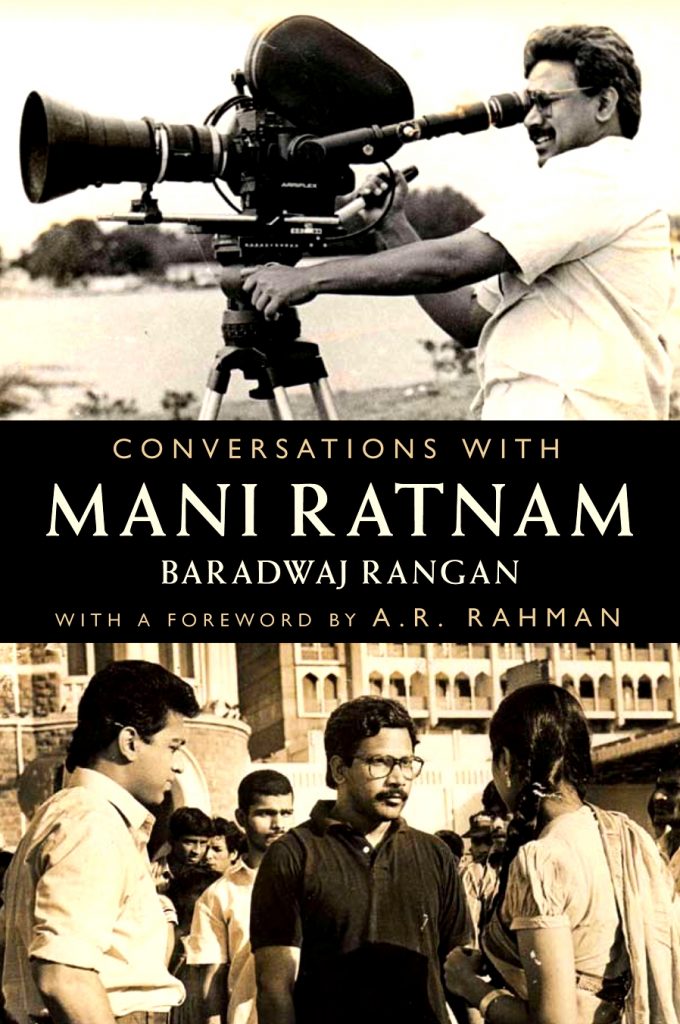
A lot has happened since then – but that was the beginning for sure. That’s why I wanted to interview Bardwaj Rangan when I thought of doing a mini-series on my blog – to pick the brains of eminent writers on cinema, clearing my confusions, and improve myself in the process. Thankfully, he obliged.
BR is a BITS Pilani Chemical Engineer, who loves writing about Cinema, and enjoys a fair share of credibility when it comes to his opinions about the art of cinema. For the rest about him, you can Google as well as I can.
To start with, the usual question – why??
During the course of my own research on films – I have often ended up going to his personal website as well as the website of Film Companion South – where BR is the editor. Some of his interviews, like the one he did with the writing team of Super Deluxe, do have English subtitles. It helps a lot – I like the way he looks at cinema, like a awe-struck teenager.

I have found a well-balanced approach in his writings and videos, be it about individual films or his analysis of varied aspects of cinema. His criticism is never quite scathing nor damaging – rather his love for the medium reflects in his quips and comments.
His write-ups feel personal, while being well researched, almost like a lived-in experience. That’s one quality I would like to emulate.

For me, it’s my sense of wonderment that eggs me on to like a film enough to write about it. There has to be something new – the approach, the storytelling, the character development, the editing, sound, lighting and all of that – it’s more like a learning exercise from someone’s work I respect.
But this is not what I do for a living.
Since I don’t get to see much of cinema (nowhere anywhere close to BR who, by his own admission, watches more than 50 films in a month) I am more likely to be wonder-struck with a movie. But yes, I do agree, it’s the ‘feeling’ that matters. I have to feel really good about a film to be able to write about it.
But then, like I said, it’s not a compulsion for me. But for someone who has chosen to write about Cinema as a profession, and that too on a regular basis – the norms are bound to be different.
So that’s what I asked BR – about the sense of balance and responsibility associated with being a film-critic.
I had to ask him next the obvious question – does he accept bribes to give good reviews? Not that bluntly – I sugarcoated the question as much as I can.
But BR came straight to the point.
I probably should have asked him how different (and useful) it is to have a digital platform as a medium for in-depth film analysis. It’s an AV friendly platform after all – and the only space where you can actually show the film clips and talk about them – no ‘film-writing’ can match that experience.
Maybe next time I will talk to him and others about that.
For now, to make my point, I insist that you watch this extensive interview BR took of Mani Ratnam, after the release of Kaatru Veliyidai (2017). The fact that he had access to the footage sure made a whole lot of difference.
BR has no formal training in film-making or writing about cinema – yet that’s what he is doing now. From writing reviews in obscure websites to working in prestigious news-platforms to heading a digital platform that has built a formidable repute for itself through quality and authenticity of content – it’s been a long journey for BR.
He is also one ‘critic’ who also likes to dabble into various aspects of film-making. He has written dialogues and screenplays – but that’s because, above all, he loves writing.
I had to ask him whether all of this actually helps him become a better writer on cinema.
BR has recently decided to participate in a training module – with some fellow critics – Anupama Chopra, Rahul Desai and Sucharita Tyagi. It’s a course that they call ‘Class in Progress’ – and it intends to give students an in-depth look into what is film-criticism.
Let me quote their intentions, verbatim.
“ With each critic discussing and breaking down their movie watching and writing process, by the end of the module the students will be equipped with practical knowledge to enrich their movie watching experience and the ins and out of being a professional film critic.”
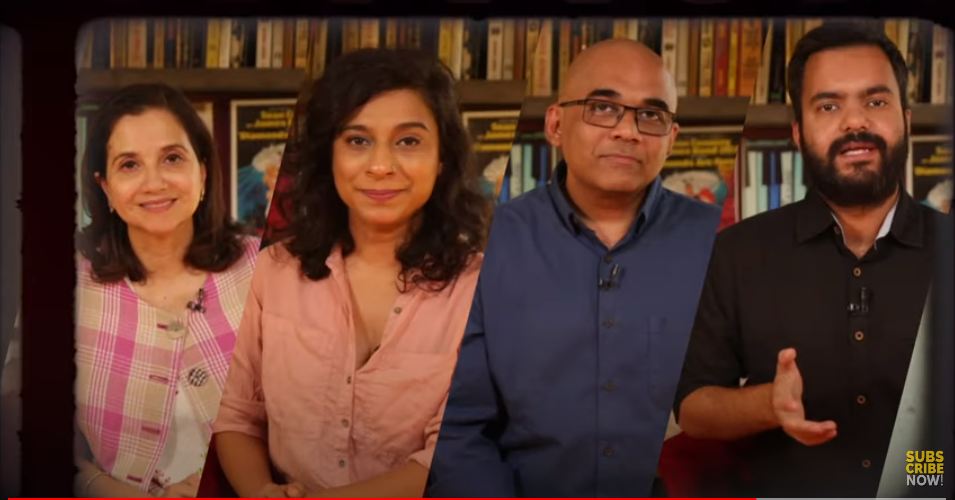
It did seem logical asking BR whether it is at all possible to teach Film-criticism. I mean we already have Film-appreciation courses (and I know what that did to me)- so is there a real need to create and execute a ‘course’ directed at making film-critics’ out of students?
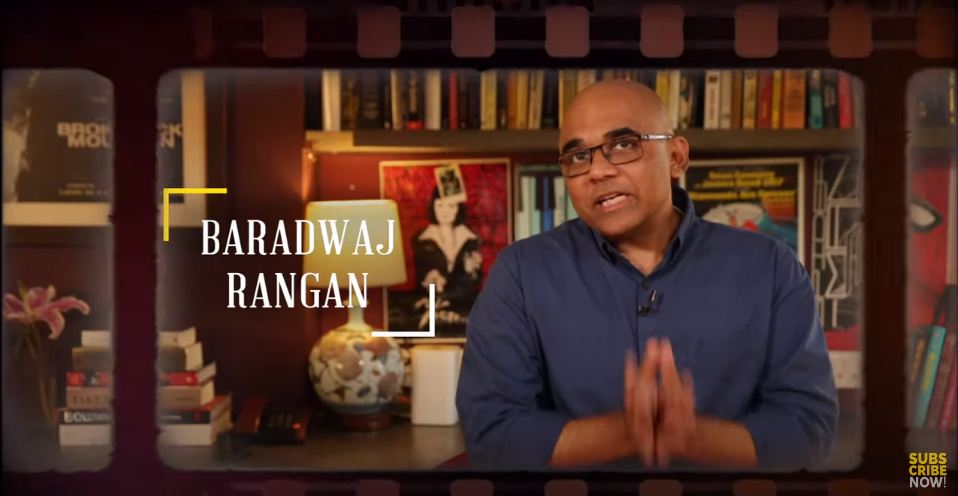
All said and done, if I have understood it right, it’s of utmost importance to keep evolving; in any field, for that matter. BR follows that dictum diligently. Take a look at his personal blog – you will know what I mean.
We are in it for the fun of it – and where’s the fun in getting stuck in your own rut? Once you start feeling comfortable with something, move on to the next chapter. It’s the unknown that keeps your mind alive, and makes sense of that turn you took in life when you first decided to take the path less taken.
Not just BR. Anyone who has ever made any sense to me thinks like that. I respect them who know how to keep moving.
That’s all for the day.
To inform all of my readers, I am now in Kochi for a project, and finally out of my quarantine. You might think that’s not a good enough reason to lose the rhythm and regularity of my blog – and I agree with you on that. But in a personal blog, sometimes personal mood swings have to be also factored in.
I have some projects here, but more than that – I have some dreams to fulfill, and some promises to keep to myself.
So let’s see where we can reach. Stay with me.


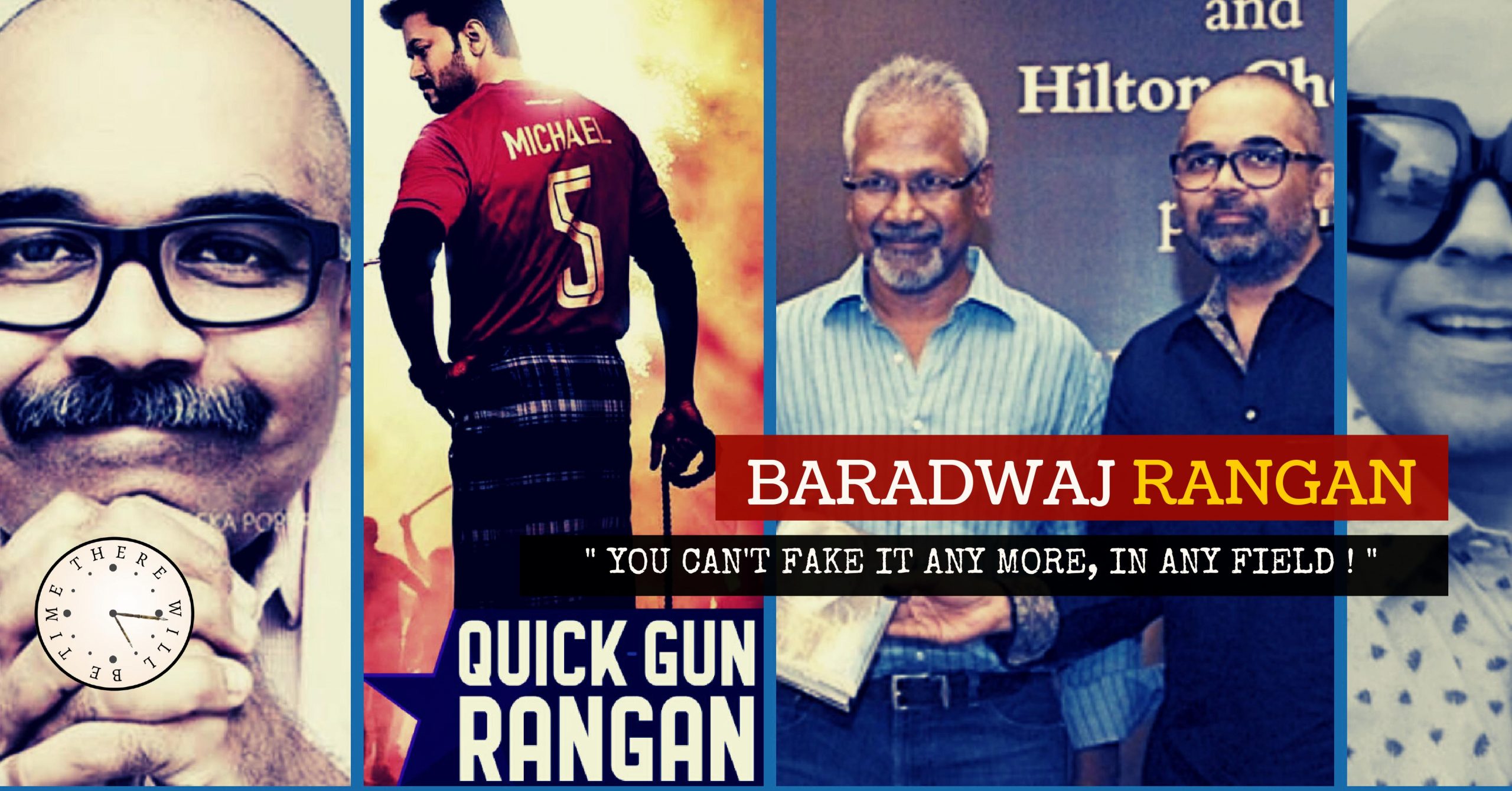
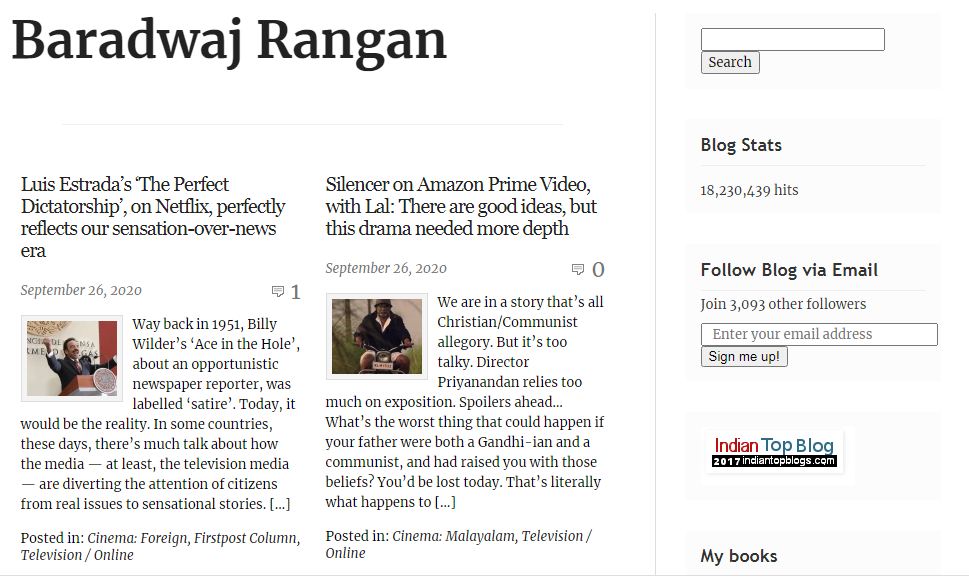
[…] The full interview is here: https://therewillbetime.com/crossfire-with-quick-gun-rangan/ […]
Thanks a lot BR.